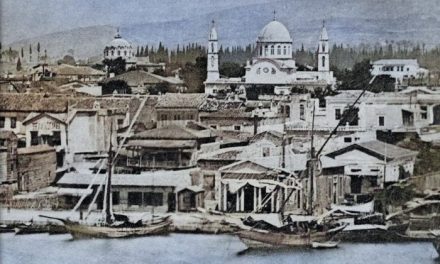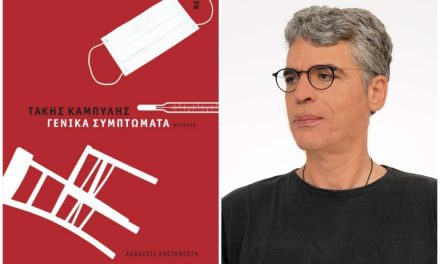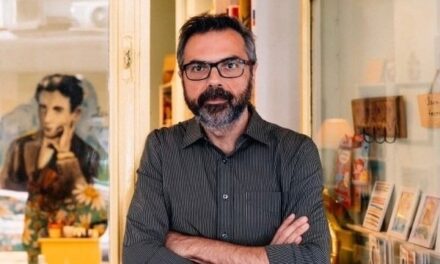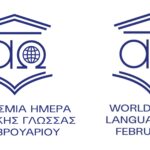Italy will be the country of honour at the 21st Thessaloniki Book Fair, which will take place on 8 to 11 May 2025. Themed ‘Orrizonti Vicini” [Shared Horizons], Italy’s participation will focus on the rediscovery of its proximity to Greece through dialogue, reflection, mutual understanding and the constant stimulation of ideas contained in the world of books.
On this occasion, Reading Greece* spoke to Director of the Cultural Institute of Athens, Francesco Neri, about the scope and program of Italy as the country of honour at the 21st TBF, the appeal of Italian literature in Greece, and the role of cultural institutes in promoting deeper understanding between countries and cultures.
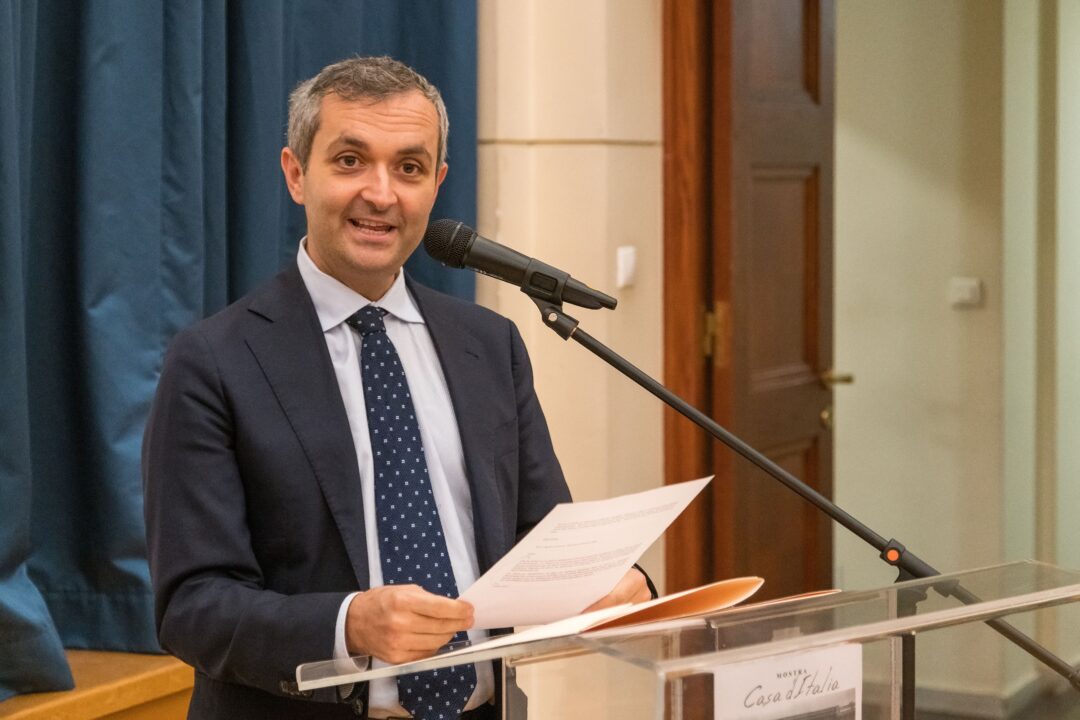
Francesco Neri holds a degree in Classical Literature (University of Bologna) and a PhD in Historical Sciences of Antiquity (University of Genoa). He has been working at the Ministry of Foreign Affairs and International Cooperation as cultural attaché since 2008. He has been director of the Italian Cultural Institutes in Luxembourg and Marseille. Since 2020 he is the director of the Italian Cultural Institute in Athens. He is the author of Reliquie eroiche nella Grecia arcaica e classica (Il Mulino 2010).
Italy will be the guest of honor at the 21st Thessaloniki Book Fair which will take place 8-11 May 2025, with a rich literary and cultural program. Tell us a few things about the scope and actions that will take place during the fair.
The participation of Italy as a country of honour at the Thessaloniki Book Fair aims to create a multi-faceted and interesting event for both the reading public and publishing professionals. Our ambition is that this year’s fair will constitute an opportunity to establish even closer and deeper relations between authors, publishers and readers of both countries, opening a new chapter in our already strong cultural relations.
To this end, our programme intends to cover a wide range of genres, from literature to essays, from comics to books for children and young people. Well-known Italian authors such as Melania Mazzucco, Antonio Manzini, Matteo Nucci, Andrea Marcolongo will be present, and there will also be meetings dedicated to illustration, the history of Italian literature and sports. We are also very happy to present a tribute to Andrea Camilleri on the occasion of the 100th anniversary of his birth, with the participation of Petros Markaris, the great Greek writer and personal friend of Camilleri. We will also dedicate an exhibition to Camilleri that will look back on his life along with another exhibition dedicated to Hugo Pratt.
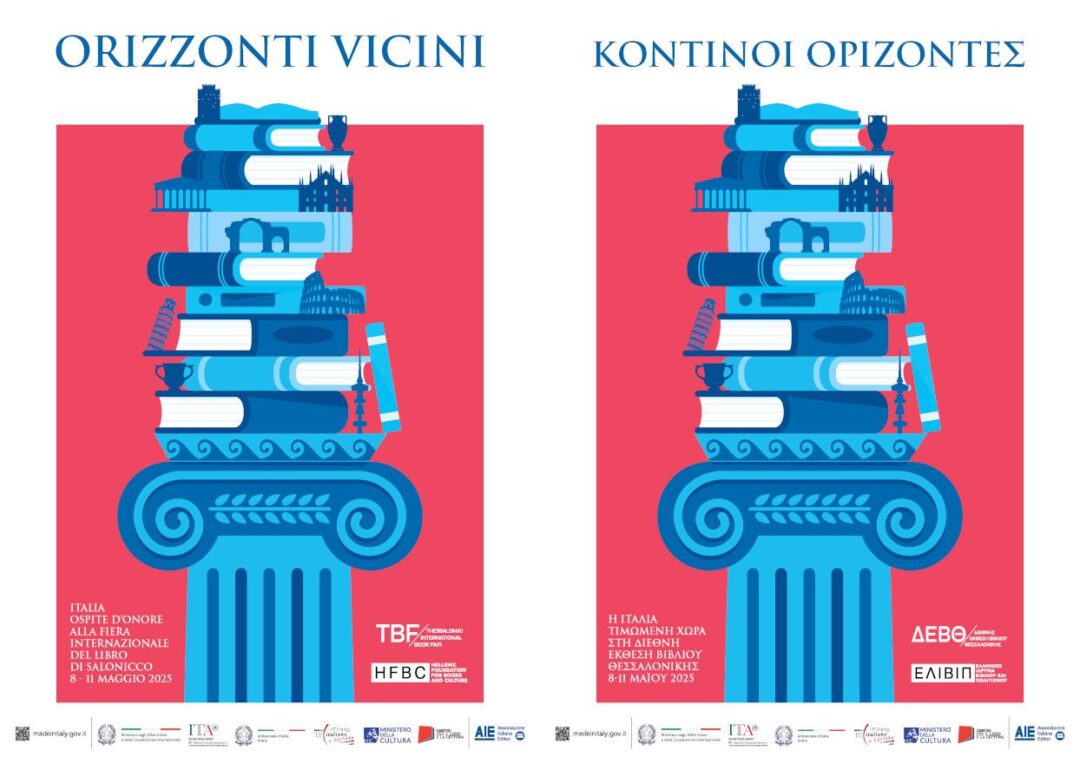
‘Orizzonti Vicini’ is the central theme of Italy’s participation laying emphasis on the cultural proximity between the two countries. How can literature and books foster deeper understanding between Italy and Greece? In this respect, how important is the contribution of the Thessaloniki Book Fair to this end?
The vicinity between Italy and Greece is not just geographical, but mainly cultural. The millennia of contact between the two countries have left traces everywhere: in languages, landscapes, names, but above all in our artistic and literary heritage. Books are therefore precisely the medium on which we must focus in order to rediscover our common roots and plan our future relations.
What is that makes Italian literature appealing to Greek readers? And in turn what is the appeal of Greek literature to Italian book lovers?
Since I arrived in Greece, I noticed that both small and big Greek publishers are very familiar with the Italian publishing market and all its genres. Every year, the Italian Cultural Institute receives numerous grant requests for the translation of Italian books into Greek from local publishers, and these are indeed high-quality projects. Certainly, the proximity between our two countries is a factor of great interest to Greek readers. The large number of Greek graduates from Italian universities, who maintain a deep connection with all aspects of our culture, also contributes to keeping the relationship with our literature alive. In Italy, readers’ love for Greece often stems from classical studies, which are still widespread in our country, much more so than anywhere else in the world.
I reckon that the challenge for Greek writers and publishers is to reach this huge audience of people who know and love ancient Greece in order to introduce them to the many excellent contemporary writers of their country.
Which do you deem are the prospects ahead for Italian literature in Greece?
Italian literature is vibrant in Greece because it appeals to different audiences: readers of comics, novels and essays, illustrators. I believe that the Italian participation in this year’s Thessaloniki Book Fair will further enhance the richness and diversity of contemporary Italian publications.
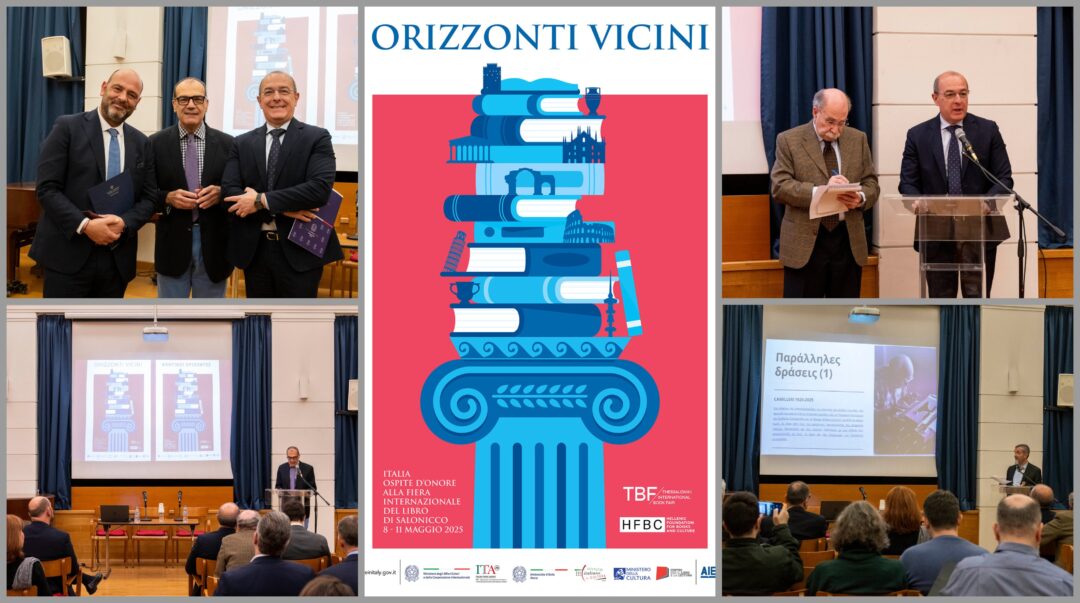
© Olympianna Miliaki
The Italian Institute of Education in Athens plays a very active role promoting Italian culture in Greece and at the same time enables better cultural proximity between the two countries. Tell us a few things about the various projects and initiatives for the foreseeable future.
Following the Thessaloniki Book Fair, we will host one of the greatest jazz musicians in Italy, Enrico Rava, as part of the Technopolis Jazz Festival on 29 May. On 31 May there will take place a concert by Rome Opera musicians at the National Opera House, while on 8 July the great composer Nicola Piovani will come to the Odeon of Herodes Atticus to conduct the Athens State Orchestra as part of the Athens Festival, an initiative organised by the Italian Institute in collaboration with the Athens Concert Hall.
More generally, can cultural institutes act as cultural ambassadors enabling closer cooperation between peoples and cultures?
In today’s world, we have the technological means that allow us to quickly obtain all kinds of information about other peoples and cultures. Unfortunately, however, we often realize how prejudices, misunderstandings and superficial judgments remain strong everywhere. This is because nothing can replace direct knowledge between people from different parts of the world. For this reason, the presence of cultural institutes that maintain a close, often even personal, dialogue with the institutions, artists and intellectuals of their host country remains an indispensable tool for building and maintaining cooperation between peoples.
*Interview by Athina Rossoglou & Anastasia Kyriakou
TAGS: LITERATURE & BOOKS | READING GREECE

